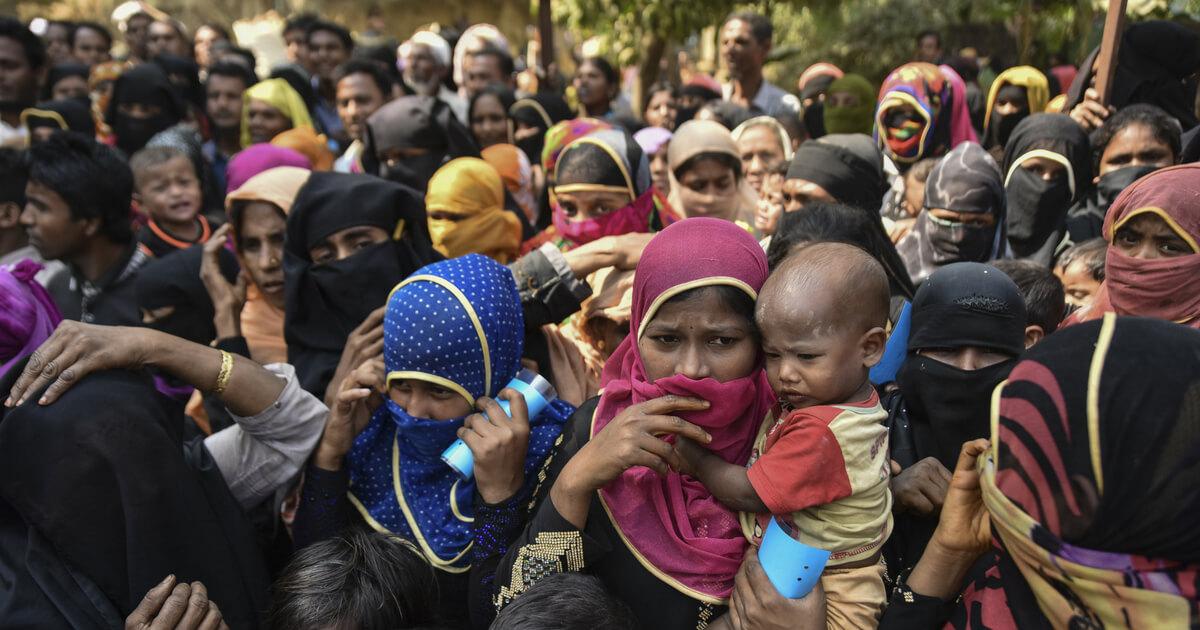
UN Says Facebook Didn't Stop Burmese Violence. Now They Could Be Charged With War Crimes.
Facebook is in hot water … again. This time, it isn’t conservatives raising hard questions about the social media giant. It’s the United Nations.
For months, the ubiquitous site run by CEO Mark Zuckerberg has come under fire from users, lawmakers, and media outlets for possible political bias. Other online media companies like Twitter and YouTube have also come under scrutiny, and even the president weighed in on the issue.
The big question at the center of that controversy remains: What is the right balance between policing people’s speech and allowing everyone to speak their mind?
Now international leaders are asking the same question. This week, Zeid Ra’ad Al-Hussein, the UN’s high commissioner for human rights, issued a dramatic warning: Facebook could be pulled into court over war crimes for failing to act against extremism in Burma.
According to The Telegraph, the UN is accusing Zuckerberg’s company of ignoring human rights abuses, and moving slowly to block extremists from using Facebook for propaganda that encouraged genocide in Southeast Asia.
A UN report about atrocities in Burma, the impoverished nation which borders Thailand, accused Facebook of being “a useful instrument for those seeking to spread hate.”
“(F)or most users Facebook is the internet,” the UN stated.
That statement could have major implications as lawmakers consider whether the social media giant is just another website, or a vital utility that is an integral part of human communication in the modern world.
“On Monday, the company banned dozens of accounts, including the military chief’s own page, in the country, where 700,000 Rohingya Muslims have fled rape and mass murder,” reported The Telegraph.
“Facebook has been accused of allowing false information and hate speech on its platform to spread across Burma, whipping up violence,” the newspaper continued.
But it may be too little, too late. Facebook itself admitted that the company was “too slow to act,” but pledged to do better about locating hate speech.
In the past, massive social media sites could shrug off those problems. With even the UN now looking over their shoulders, however, things are getting much more serious.
“Speaking in Geneva, Mr Al-Hussein said Facebook risked being subpoenaed in future trials ‘of those accused of the worst crimes’ if it did not learn its lesson from the violence,” explained The Telegraph.
Watching often-smug social media executives be hauled off to international court might bring a smile to some people’s faces, but there are precarious problems with what the UN wants.
While it’s pretty clear that in this Burma situation, Facebook pages were wrongly being used by genocidal forces to encourage and coordinate violence, other cases may not be so clear-cut.
Defining “hate speech” can be a lot harder than it seems. Say a group like the Peshmerga is fighting against the extremist Islamic State in Iraq and Syria; both groups use Facebook pages to rally support and give updates. They hate each other — after all, they’re at war. Is this permitted?
What happens if a group of radical Muslims claim that Peshmerga is the one committing hate crimes? How about “antifa” versus Patriot Prayer? Who decides which side is the instigator… a 20-something intern at Facebook?
Or take other conflicts like the Russians in Crimea or the Israeli-Palestinian conflict. Are Israelis allowed to condemn rocket attacks from Gaza, or is this “hate speech?” What about the other way around?
Then there are questions of the role of social media censorship and banning here in America. There are legitimate concerns from many citizens regarding Islamic Sharia law and practices like female genital mutilation. If a conservative group criticizes Sharia, is this hate speech?
There is potentially a very slippery slope when it comes to labeling a view “hateful” and then using that to justify silencing thousands or millions of voices. We’re already seeing that today, and it will only become more of a minefield in the future.
It’s also worth wondering where Facebook’s priorities truly are. If — as the UN claims — the social media company ignored horrific genocide in Asia, it seems rather petty that they’ve been busy policing conservatives like Diamond and Silk or Prager University.
While censor-happy busy-bodies pretended that conservative posts here in America were “dangerous,” actual war crimes were taking place on the other side of the world. Facebook’s platform was in the middle, and even company insiders admit they were slow to respond.
Perhaps if tech giants stopped fretting over imagined U.S. political slights, they could focus on the real problems. After all, people’s lives are actually at stake.
Truth and Accuracy
We are committed to truth and accuracy in all of our journalism. Read our editorial standards.
Advertise with The Western Journal and reach millions of highly engaged readers, while supporting our work. Advertise Today.












